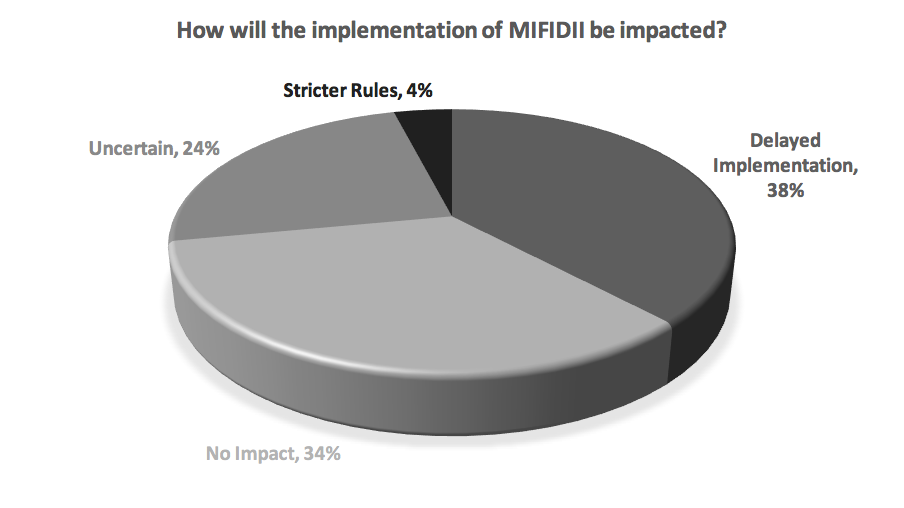It has been postponed once, and now many firms worry MIFIDII could be further delayed by Brexit. The question on everyone’s minds is will Britain’s decision to leave the European Union throw Britain’s compliance with MIFIDII into a tailspin?
What does Brexit mean?
On June 23, Britain voted to leave the European Union in a nationwide referendum. The result sent a shock through financial markets. For most in Britain, the result was uncomfortably close. Leave won by 52% to 48%. The referendum turnout was 71.8%, with more than 30 million people voting.
Britain’s withdrawal from the European Union will not formally begin until Article 50 of the Lisbon Treaty is invoked. Triggering Article 50 gives the parties two years to agree to the terms of the split. Several European heads of state, including France’s François Hollande, hoped Article 50 would be triggered promptly in the event of UK’s leave vote. But Britain’s new Prime Minister, Theresa May, has publically stated that she will not trigger Article 50 before the end of 2016. This means that there will not be a clear idea of what kind of deal the UK will seek from the EU, on questions of trade and immigration, until 2017. From a legal standpoint, Britain remains under the jurisdiction of existing European laws for the next two years.
How will the implementation of MIFIDII be impacted?
Britain’s decision to leave the EU has fostered doubts about the implementation of MIFIDII. The ambitious set of trading rules laid out by the MIFIDII are subject to approval by the British parliament, and UK investors are questioning whether certain aspects of MIFIDII – namely, volume caps on dark pool trading, the ban on broker crossing networks, and the transparency regime for illiquid fixed income securities – are in Britain’s best interest.
In a poll conducted in the two weeks following the vote, capital markets research firm Tabb Group polled over 300 market participants – including brokers, banks, vendors, exchanges, and prop trading firms – to gauge their views over the UK’s decision to leave the European Union.
Participants were asked to assess the impact of Brexit on the implementation of MIFIDII. The majority of respondents (38%) stated that Brexit will delay the rollout of the legislation, with 34% saying that they were uncertain as to its impact.

The report accompanying the survey reads:
“The banking and dealer community were somewhat optimistic about any potential delay, although they were only marginally more expectant than exchanges and the vendor community.”
But firms hoping for a delay will be disappointed by the Financial Conduct Authority’s (FCA) recent issue of a stark reminder that UK firms must continue to prepare for the new rules.
“Regardless of MIFIDII regulatory implementation, commercially the horse has bolted,” says Jon Foster, Co-Founder of Smartkarma. “At its core MIFID2 is about reducing conflicts of interest, and creating a new gold standard for transparency and the duty of care owed to investors. Leading global players are incentivised to adopt this new Gold standard as they compete for assets. This competitive tension will ensure widespread adoption; by participants, by countries and by innovators reshaping the industry for the better.”
Chris Aspinwall, CEO of British tech firm Fidessa said in an article recently published by Futures & Options World that while it is still too early to know all the implications of Brexit on financial markets he does not see “any impact on the changing regulatory environment.”
Tullet Prebon has become the second City firm to predict that British firms will have to comply with the European trading reforms irrespective of Brexit. Tullet said in a statement last week: “The uncertainty surrounding Brexit has raised questions about the implementation of MIFIDII but so far the message from regulators has been to carry on.”
The London-based broker added: “The implementation of MIFIDII has to take place at least a year before any expected Brexit event, and in most planning scenarios the UK will maintain the alignment with MIFIDII at least for the foreseeable future.”
Except in the event of any major changes, it seems that MIFIDII will roll out in January 2018 as expected.
For more on MIFIDII and how it will impact the way that investors buy and consume research, read our blog post here.



